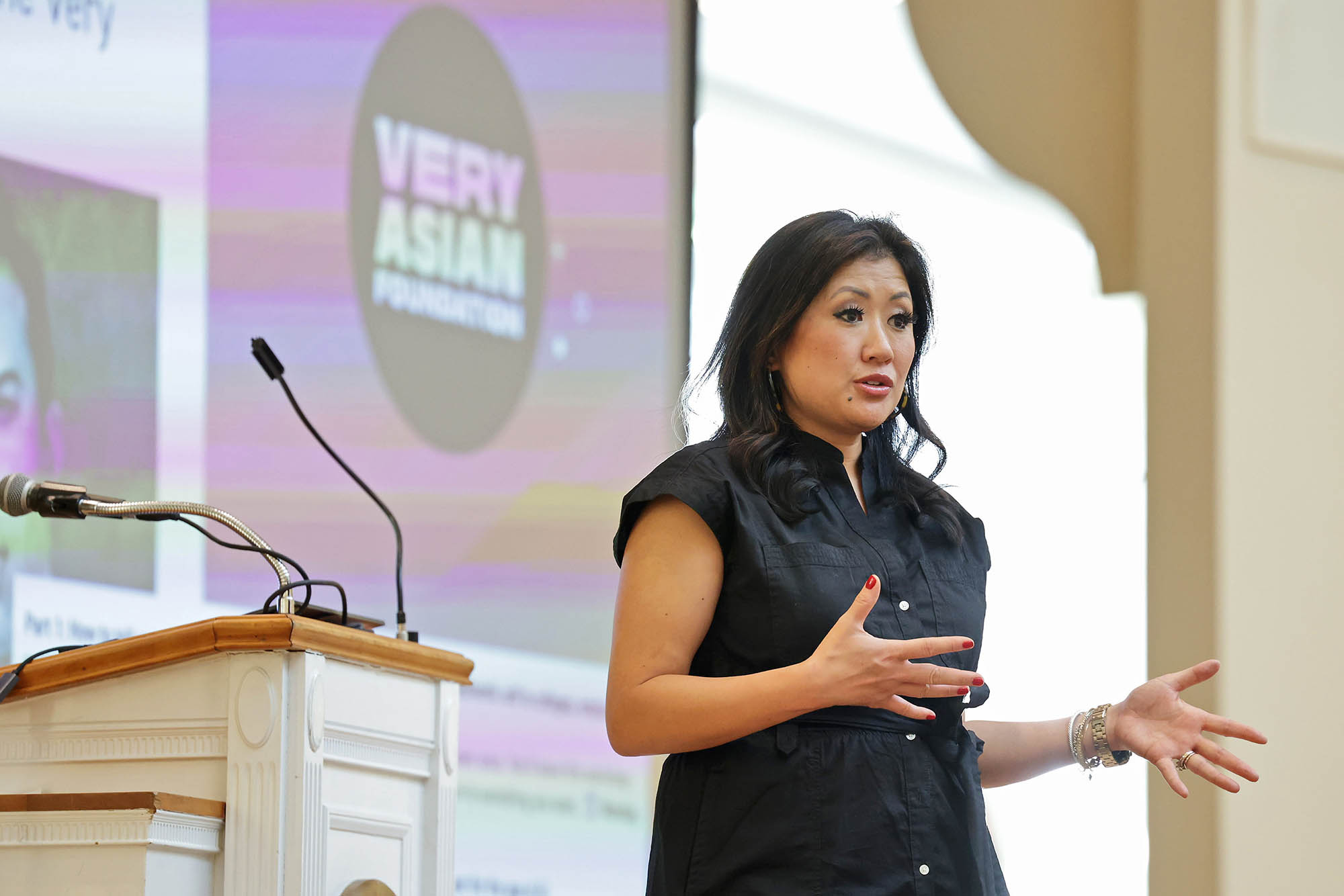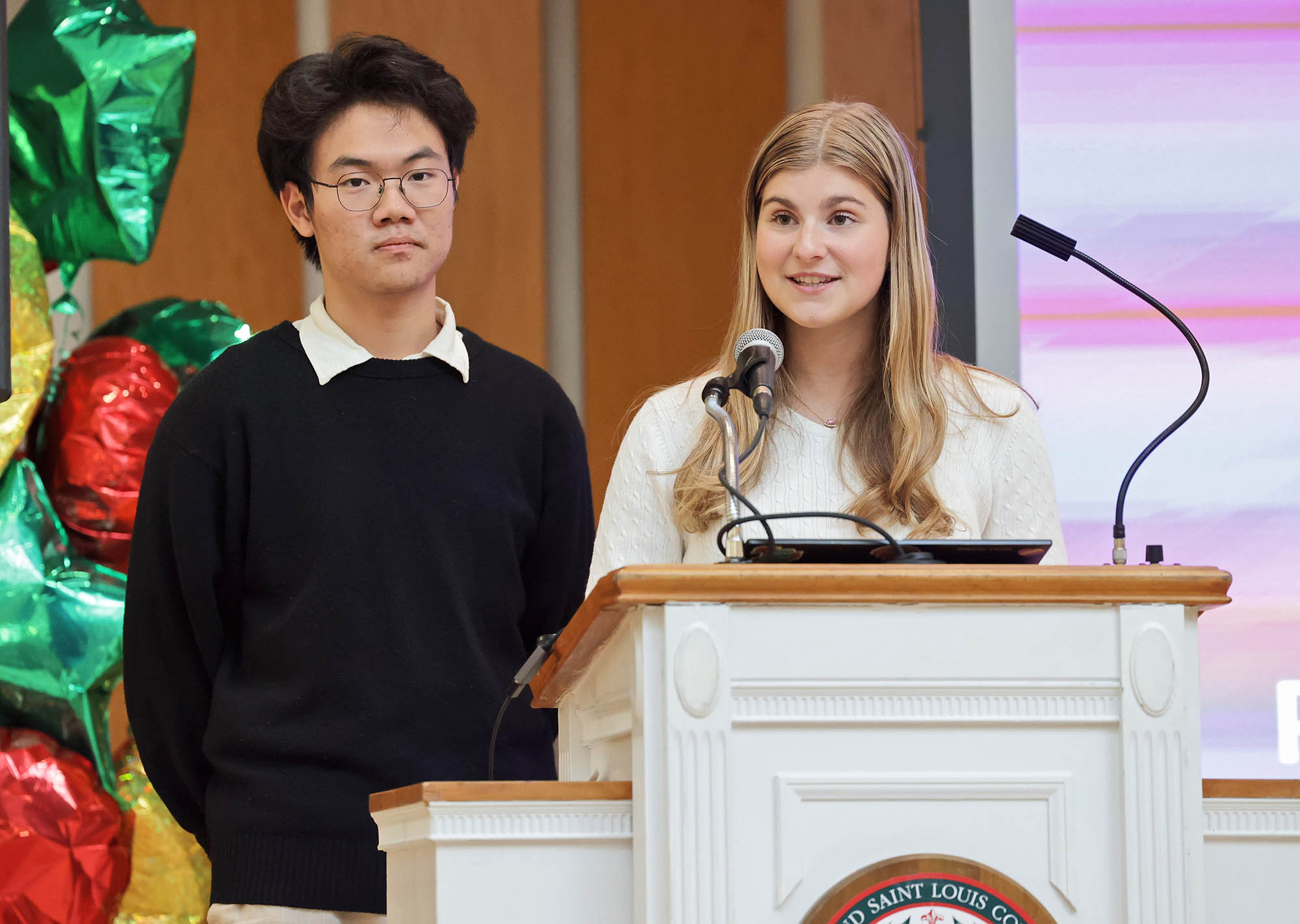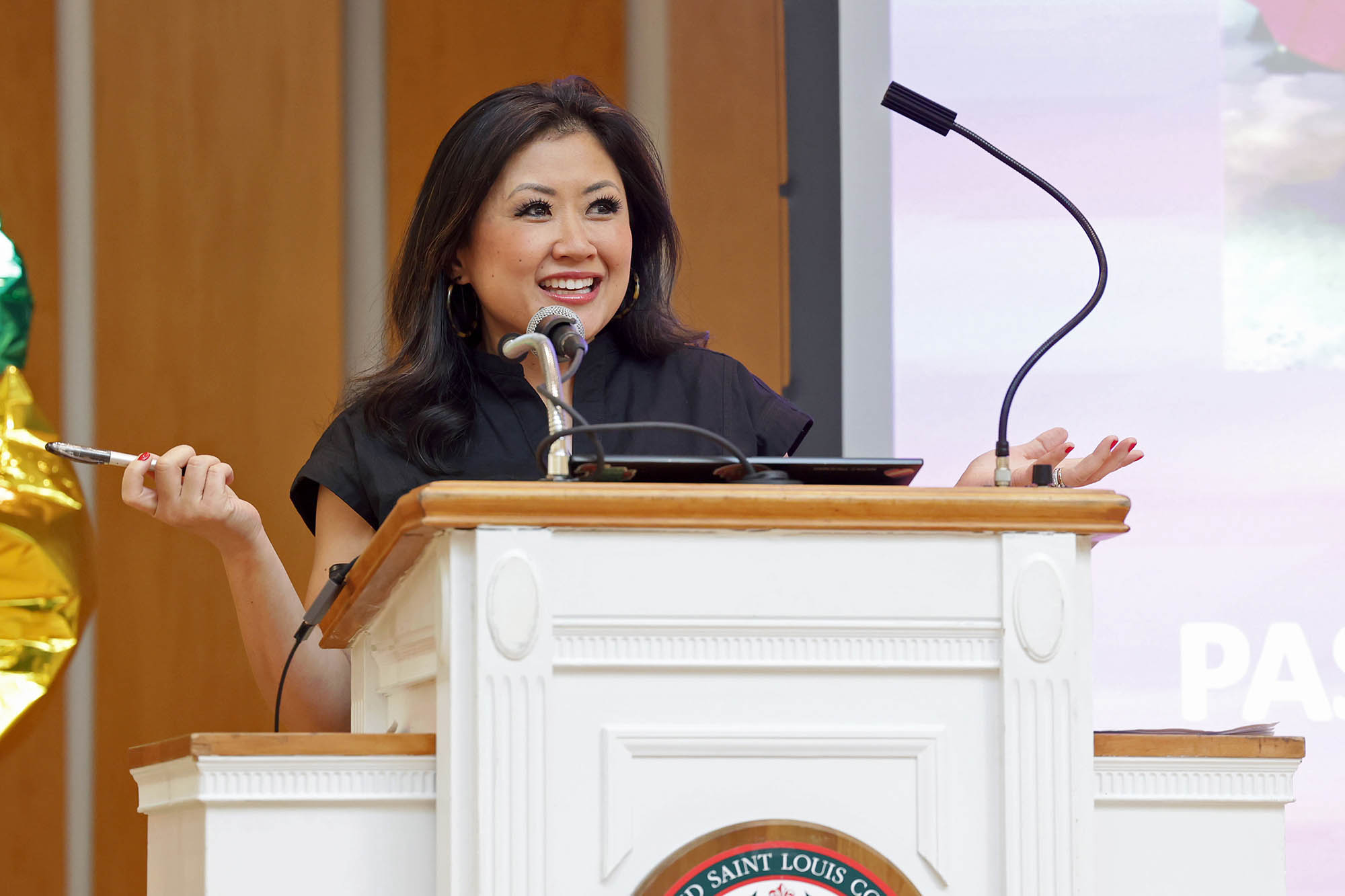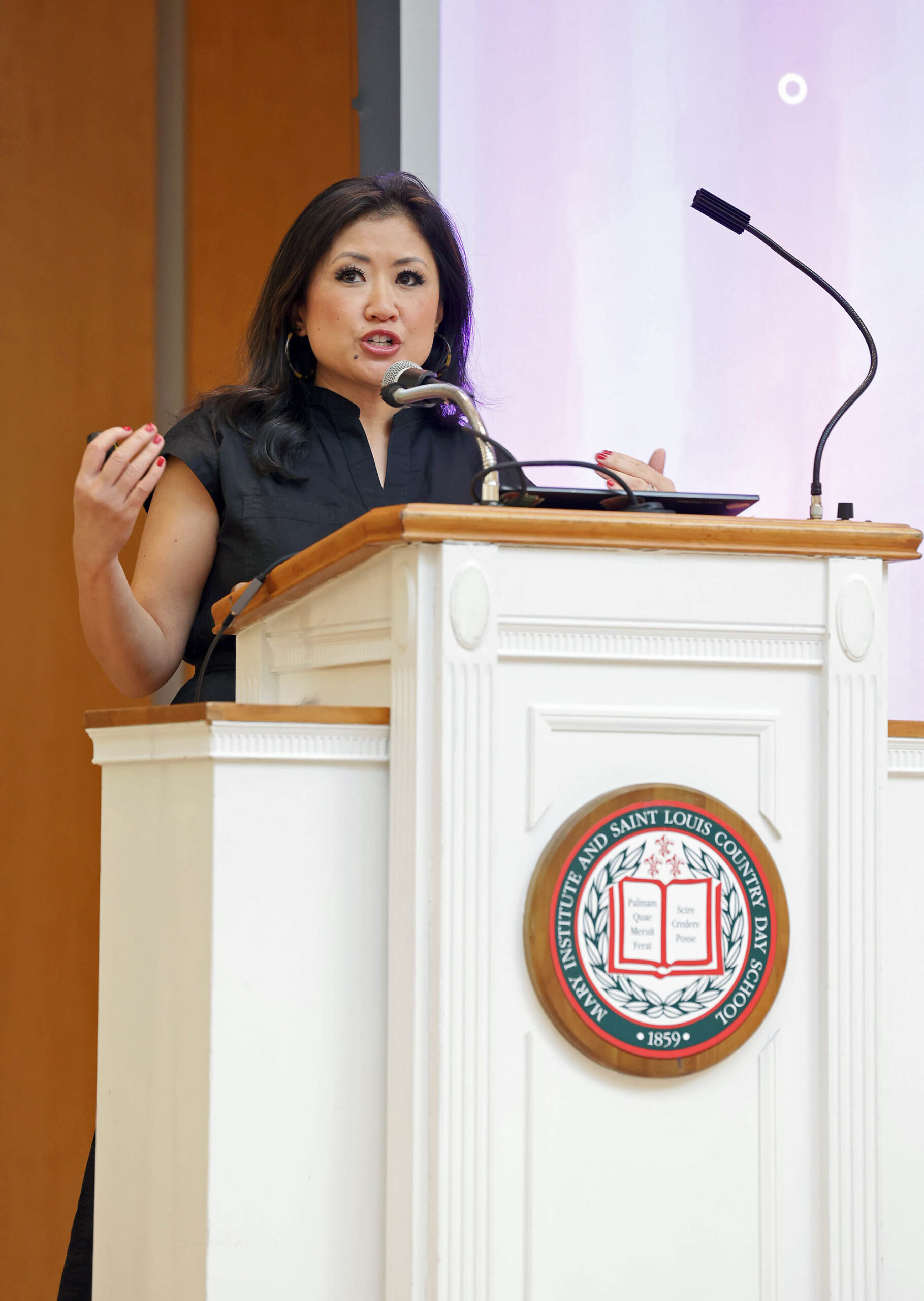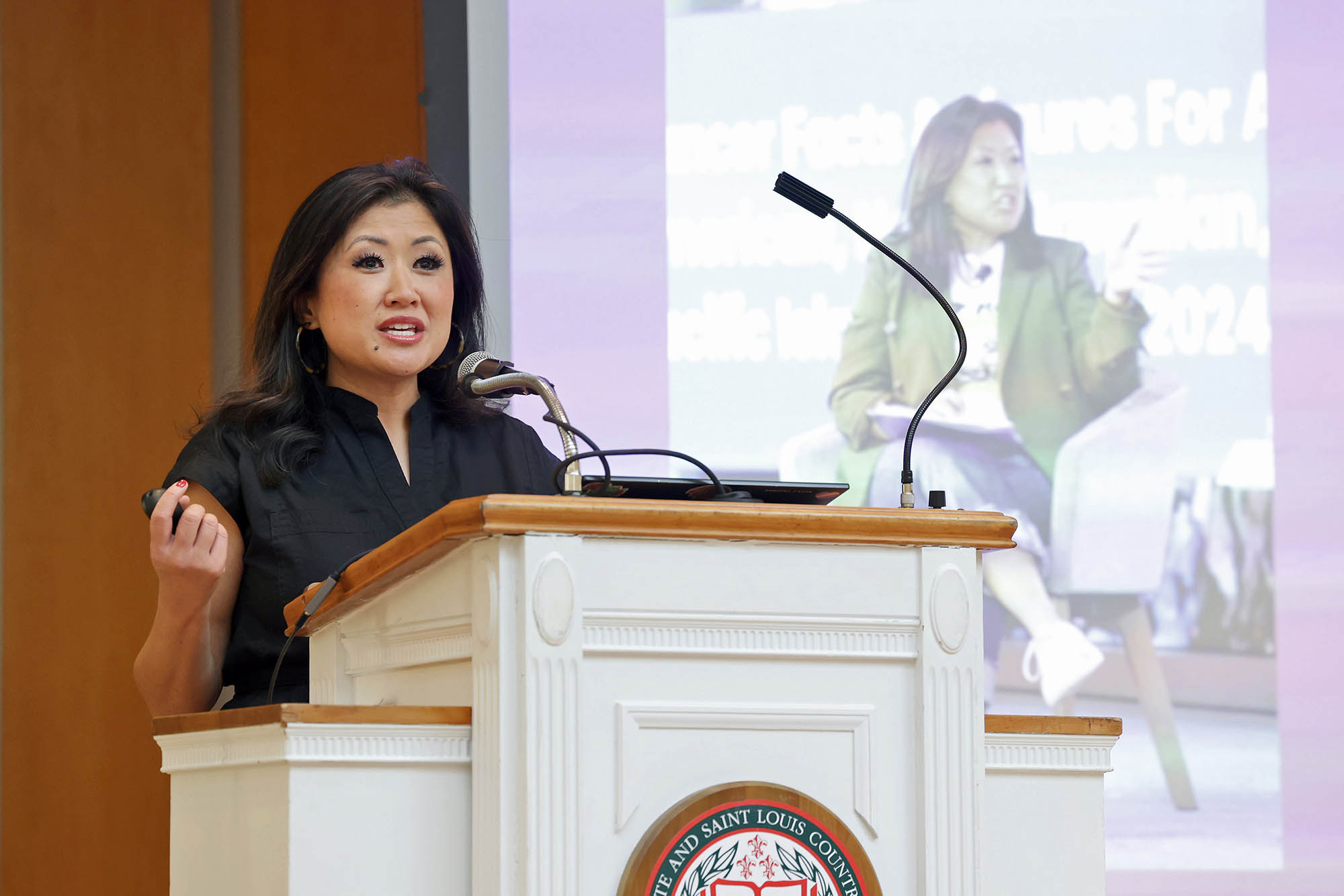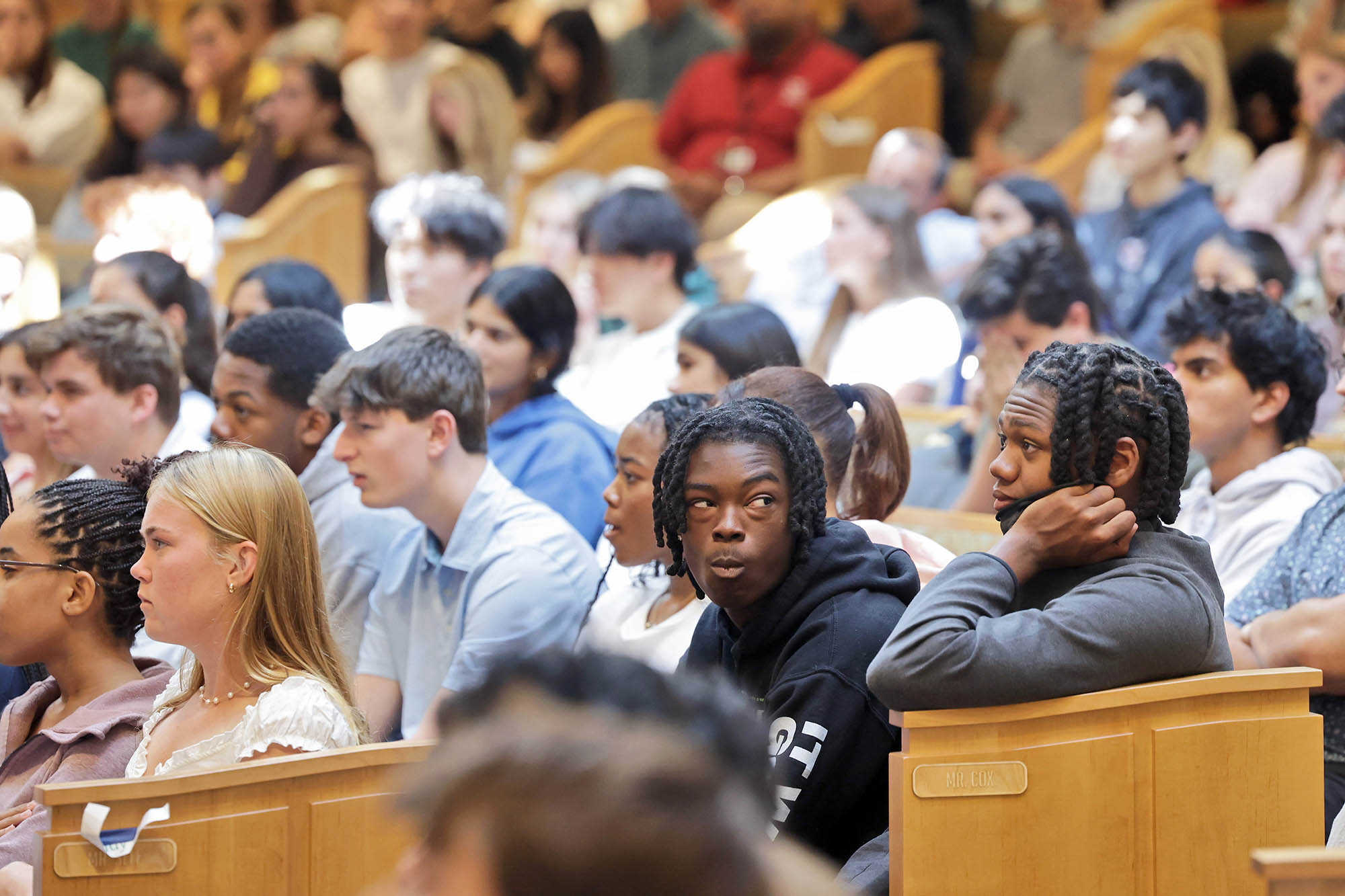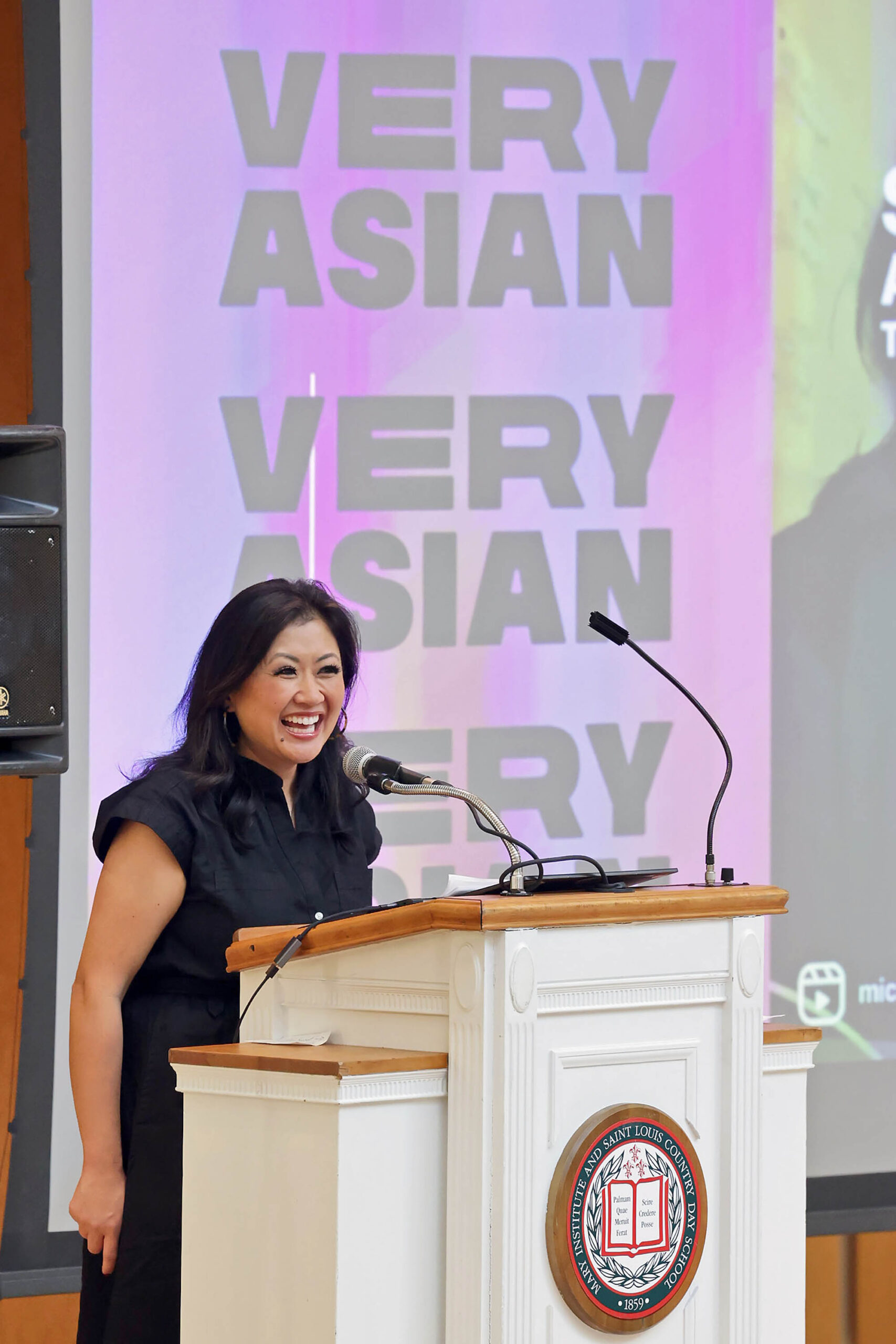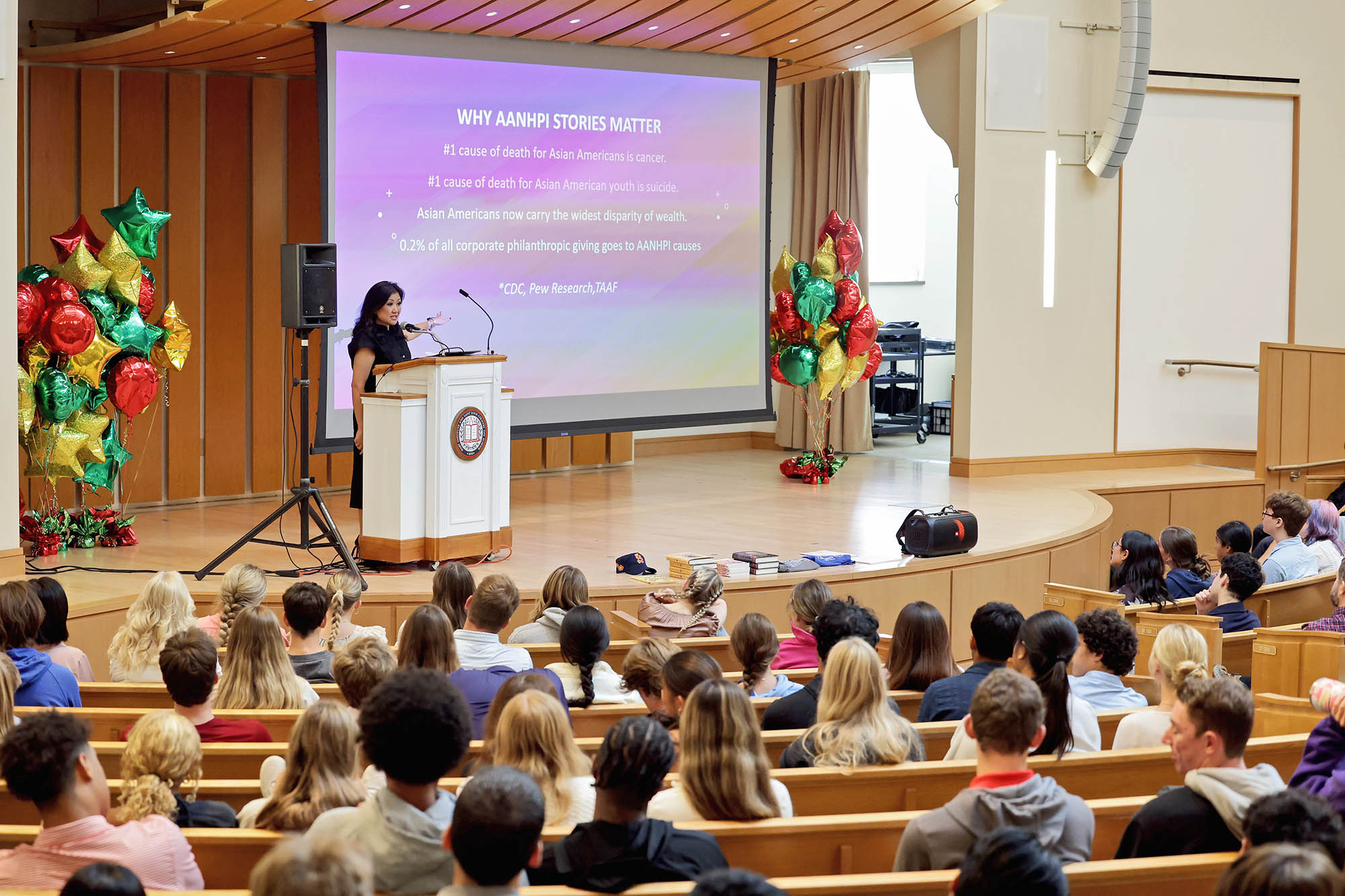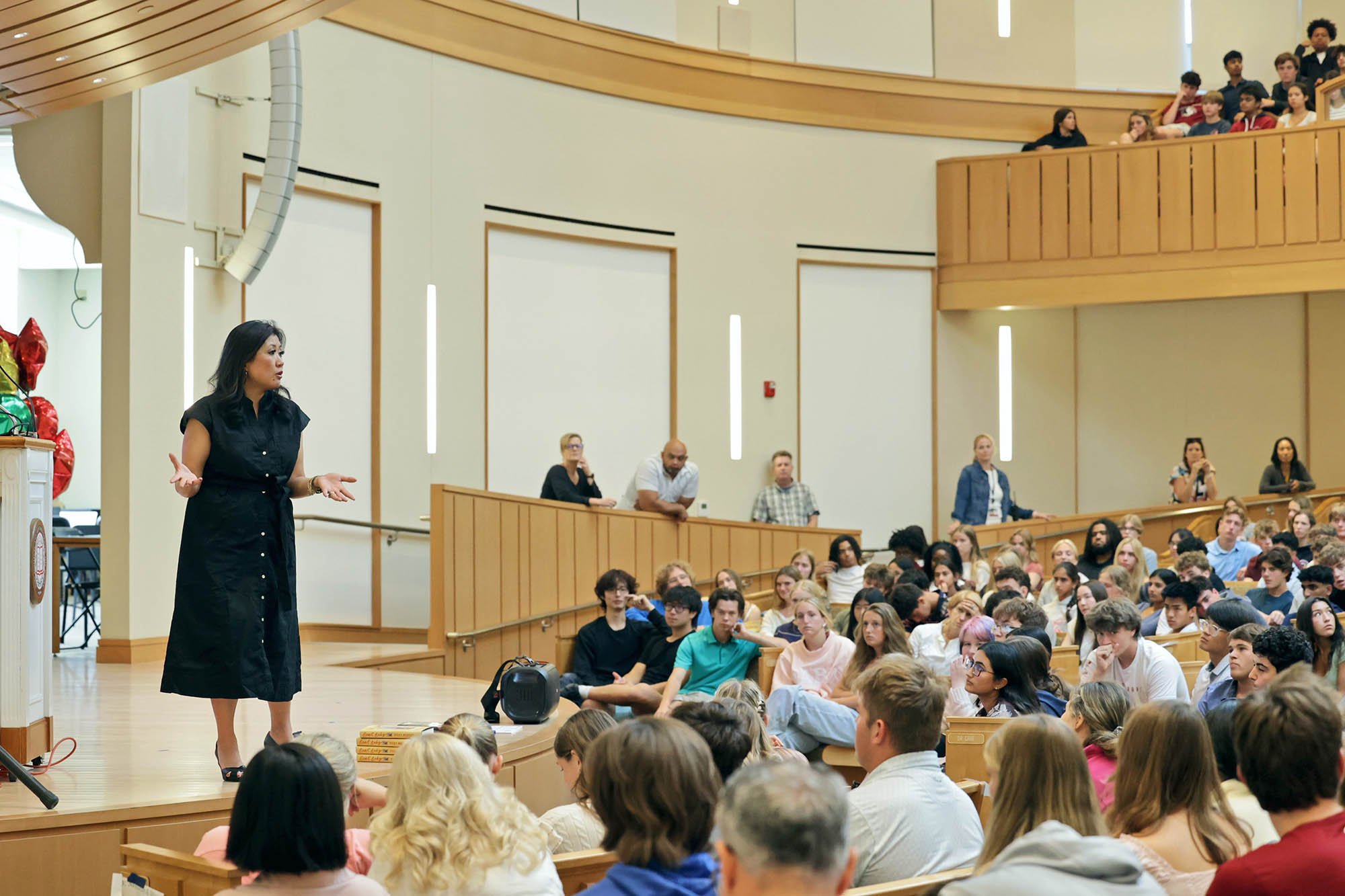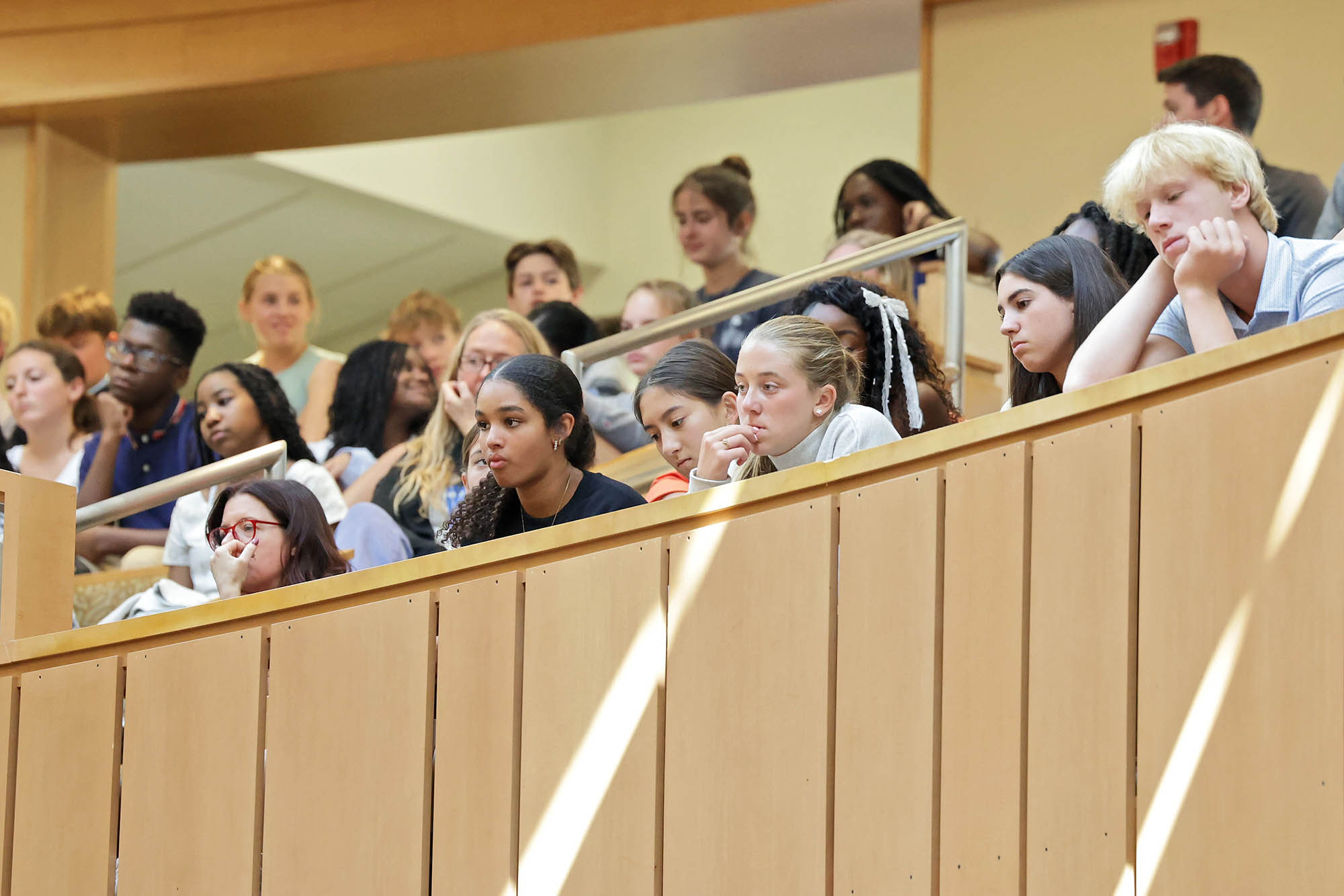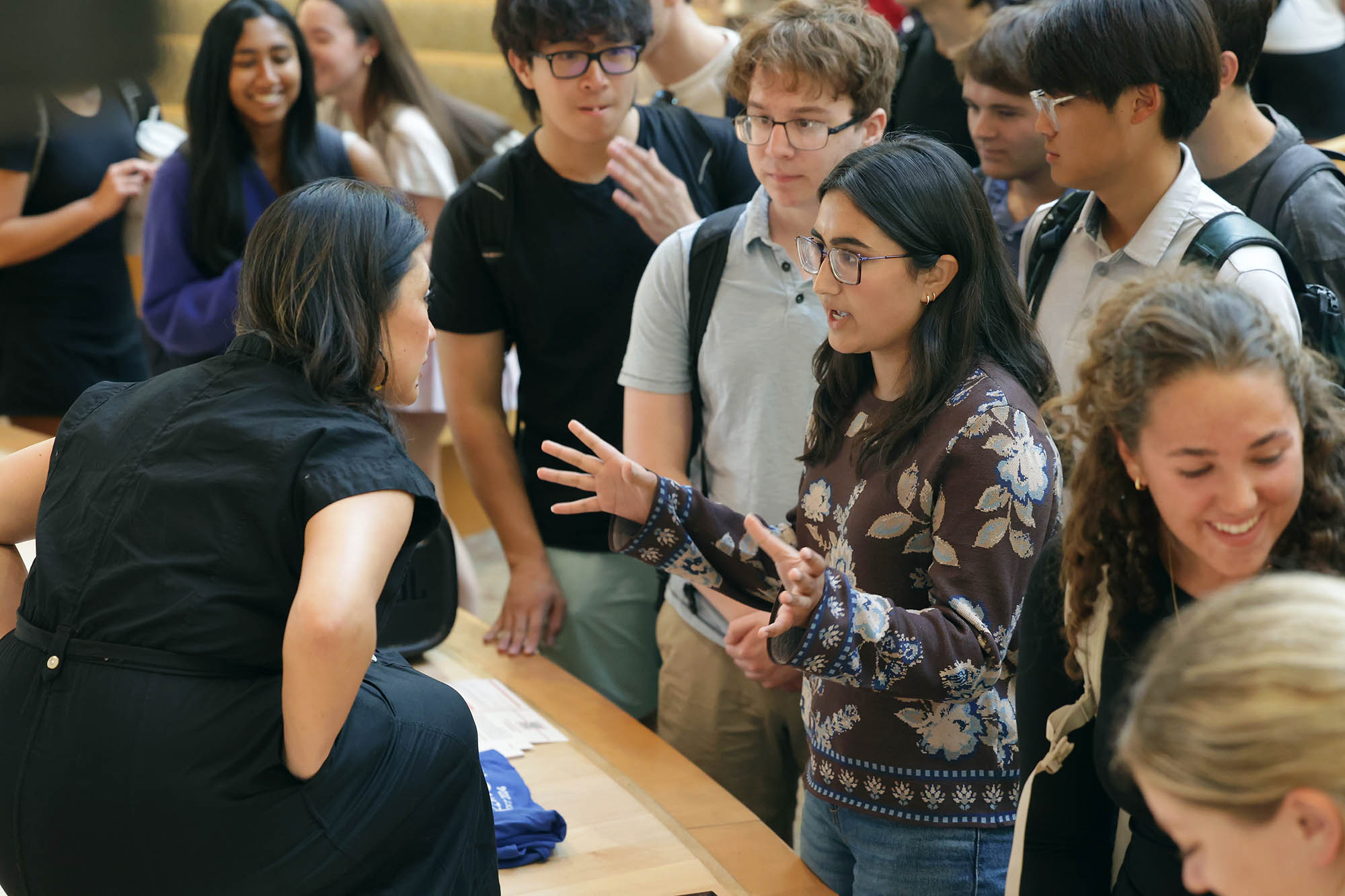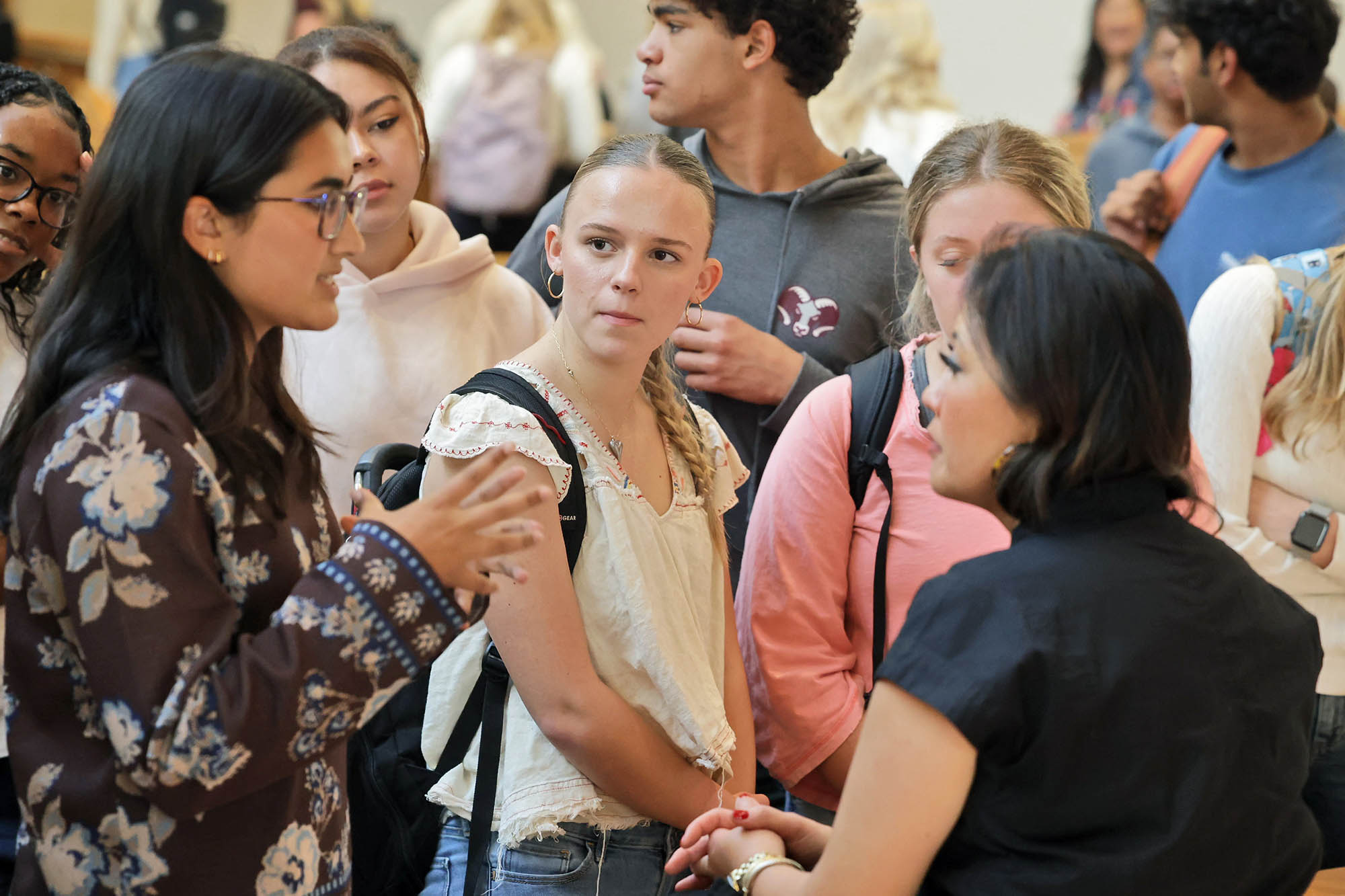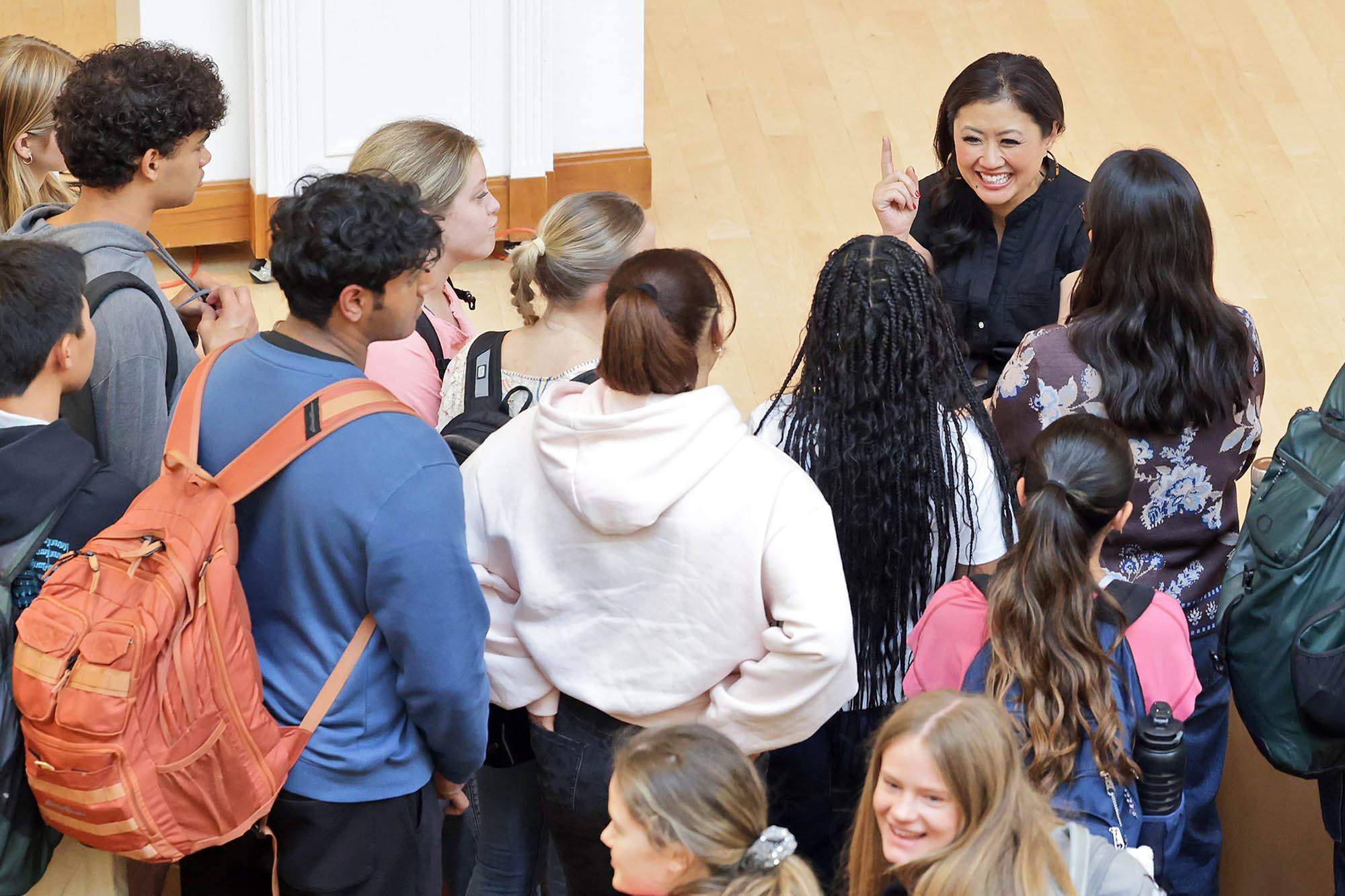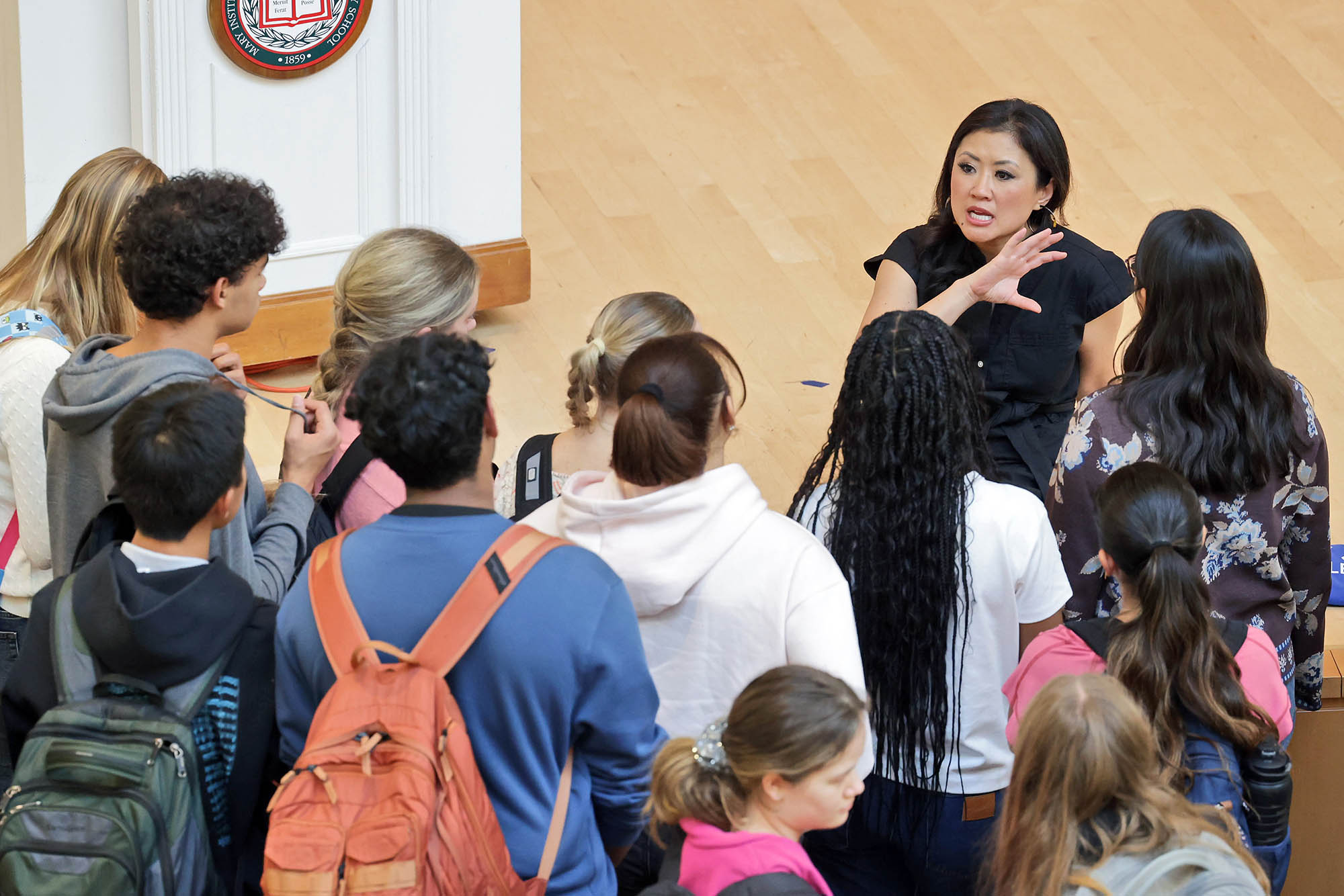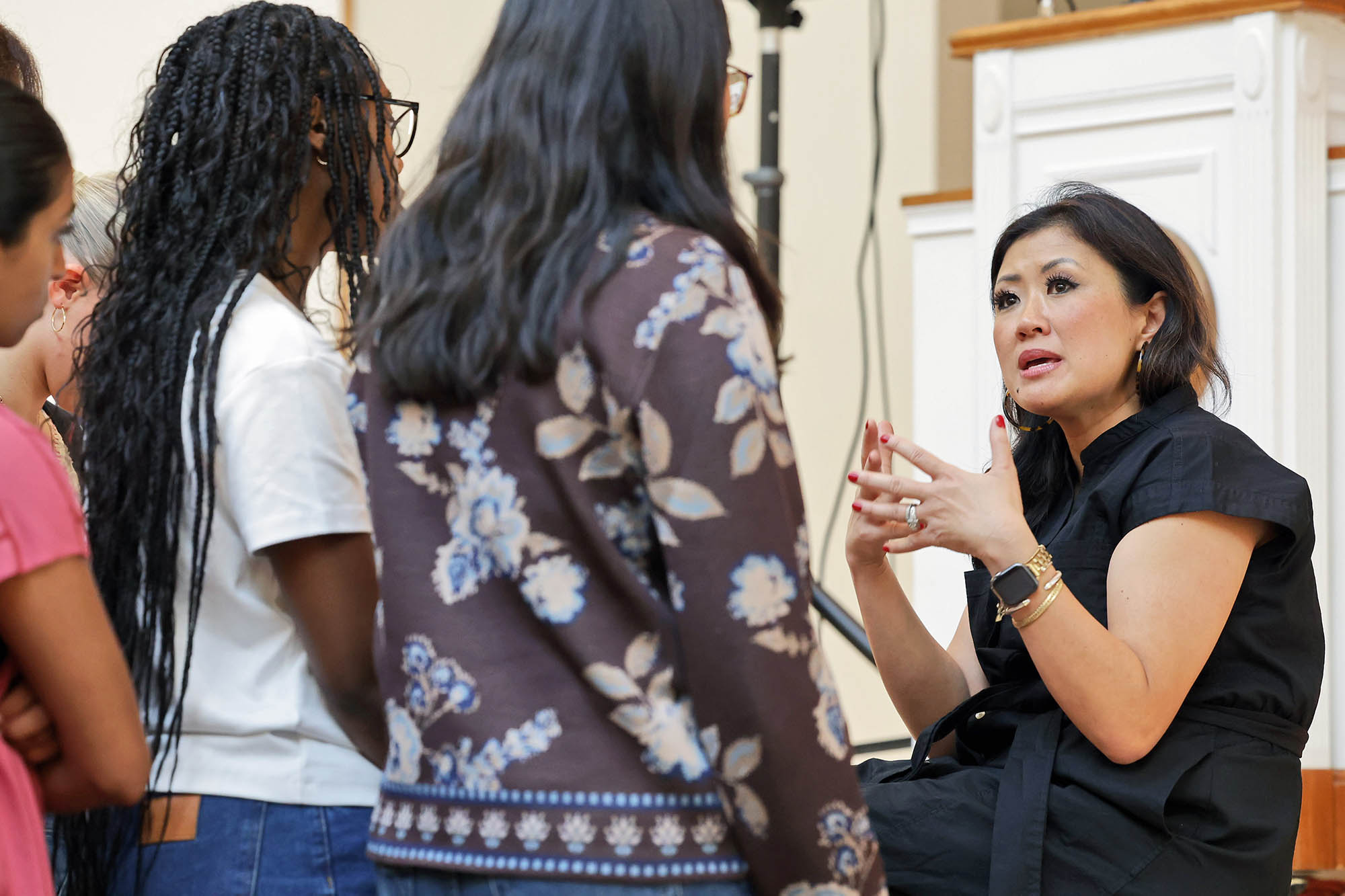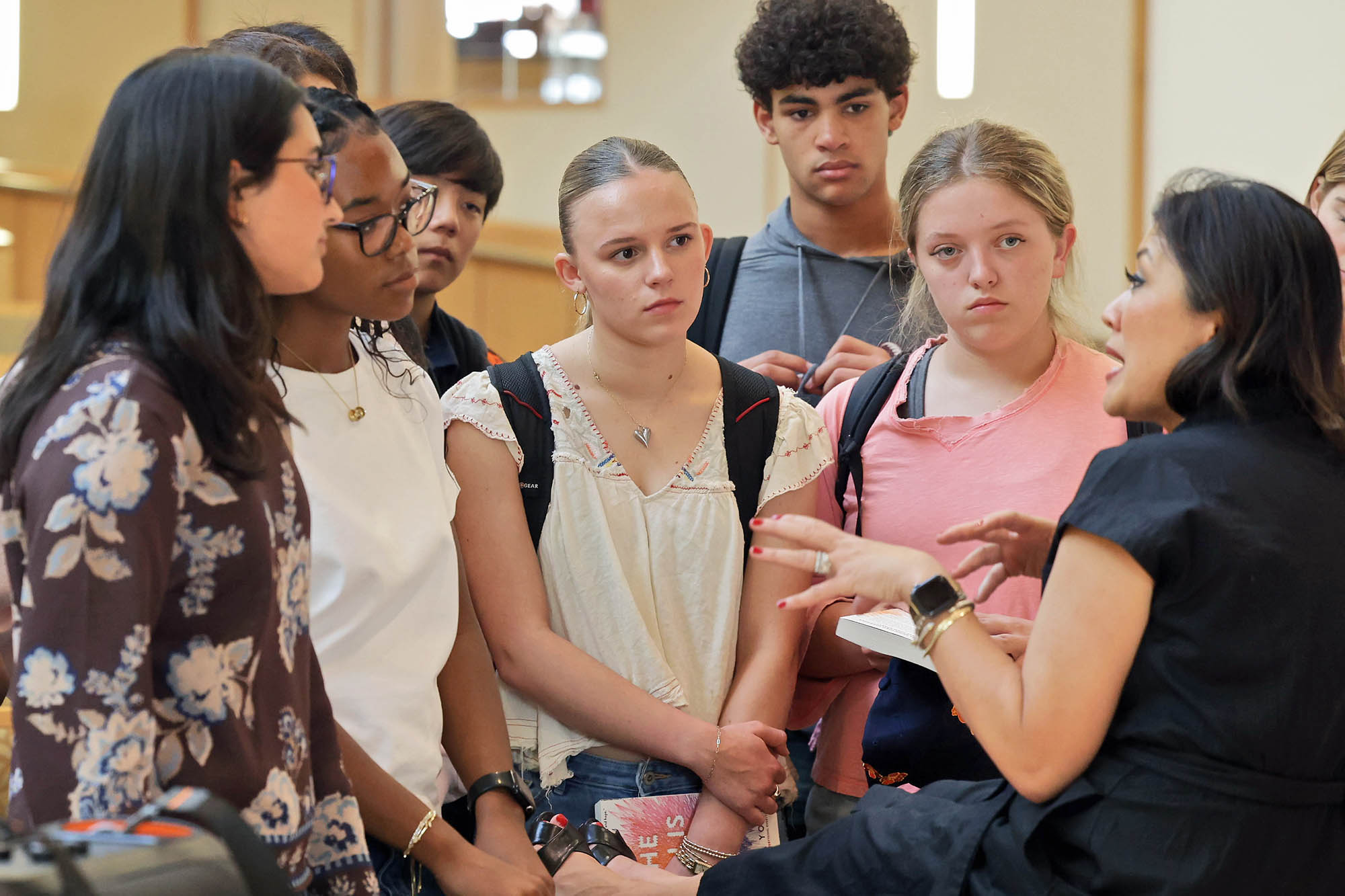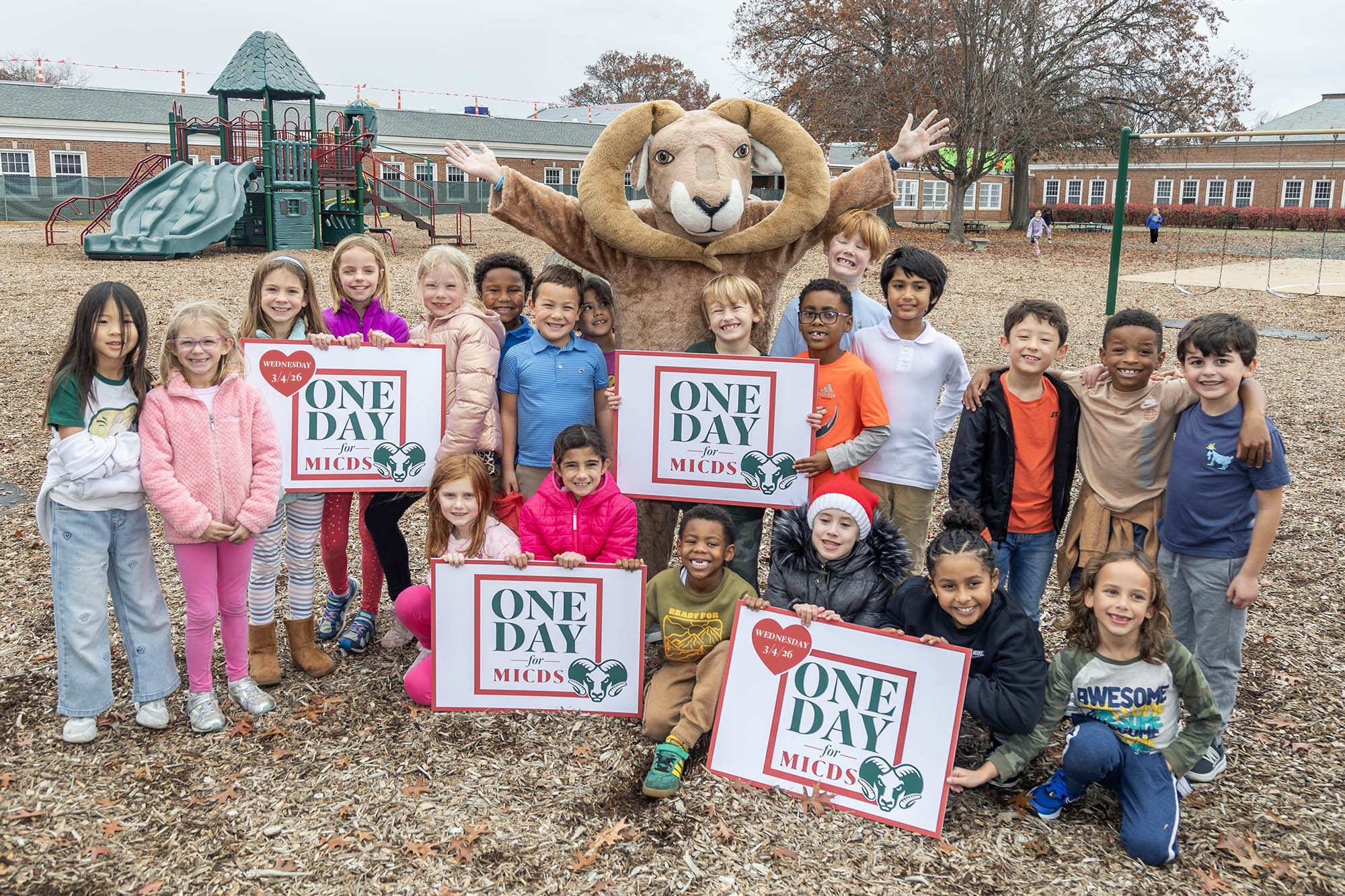This year, our amazing Upper School deans are creating new opportunities for students to learn and grow as a community. First up is Dean Melanie Duffy, who invited Michelle Li P’37, to speak about passion and purpose.
Li has worked in broadcast journalism since 2002 and is the founder of the Very Asian Foundation. She was introduced by Katherine Ellenhorn ’26, editor of The Voice student newspaper, and Andy Zheng ’26, co-head of the Asian Student Association. They said, “We are excited to welcome Michelle Li, an award-winning journalist and passionate advocate whose work has made a profound impact both in the newsroom and in the community. As a respected reporter for KSDK Channel 5, Ms. Li has distinguished herself through her exceptional storytelling, earning multiple prestigious Peabody and Edward R. Murrow awards for her impactful journalism.
“Beyond her acclaimed reporting career, Ms. Li is the co-founder of the Very Asian Foundation, a nonprofit organization dedicated to supporting and uplifting the Asian American community. What began as a response to adversity sparked a global movement of solidarity and support exemplifying Ms. Li’s ability to transform challenges into opportunities for positive change.
“Today, we have the privilege of hearing from someone who embodies resilience, excellence in journalism, and unwavering commitment to community service.”
Li took the stage and spoke first about her work in broadcast journalism. She shared that the field is metrics-driven and that there are defined standards of excellence. “We take a lot of pride in our work,” she said, and she sees part of her job is to “give a voice to the voiceless.” It can be challenging to balance hosting a bubbly, high-energy morning show with having to deliver real news each day.
She also spoke about how she is defined. “This face is my currency,” she said. “I’m a Korean-born person, an Asian American, Missouri-raised, a wife, mother, and I’m also a Korean adoptee. I’m a naturalized citizen, an immigrant on paper. There are tens of thousands of immigrants like me who are candidates for deportation. Sometimes the representation of having an immigrant in the newsroom can provide a response, can force us to ask better questions. Sometimes this hurts me, sometimes it helps me.”
Li asked students to consider how others see them. “How do you think people see you?” she asked. “Has anyone made you feel less proud to be these things?” She notes that things we are proud of in our home life can bring shame in other circles. Li shared about moving to St. Louis from Seattle during the height of COVID, after her mother suddenly died. She took any shift she could get at KSDK, even working holidays. In 2022, she spoke briefly on the air about what Americans eat on New Year’s Day and why. Her producer requested a short story, and her segment was only 25 seconds long. To Li, it felt as if she were simply talking to herself, remembering traditions in her own family. The segment was over and she saw a few nice comments on social media. “It was not a big deal,” she said.
And then a viewer called the station and left a voicemail. Li played the message, which is a woman’s voice complaining about the segment. The viewer didn’t like that Li had mentioned she eats dumpling soup on New Year’s Day, a Korean tradition. She said that Li was being “very Asian” and advised her to “keep her Korean to herself.”
Li was stunned, saddened, and upset. She shared the voicemail on her social media channels, and it quickly went viral. “It came at a time when a lot of people were talking about anti-Asian sentiment,” she explained. “And it also made me worried. I work in an industry with metrics and subjectivity. If enough people think I’m not connecting with my audience, I will lose my job.” Her post went viral, and to Li, it was scary. “In news we have this cardinal sin: you don’t want to become the story. You report on it. You don’t ‘be’ the story. It was massively embarrassing for me. I had to explain to my boss that I had posted something that was getting a lot of traction.” National and even international news outlets were contacting Li, asking for interviews.
What Li didn’t realize immediately was that this one voicemail would change how she looked at passion and purpose. “It changed the trajectory of a lot of things in my career and personal life, and opened the possibility of new projects,” she said.
Soon, a lot of celebrities started posting about being #veryasian. A friend said that the trending hashtag sounded like a t-shirt, and then she made some. “They sold all over the world,” Li exclaimed. “Germany, China…they were being bought not just by Asian people but also by people who had Asian grandparents but don’t present, and a lot of people who wanted to offer support and solidarity. Very Black and Very Jewish also started trending.”
Li began to see this notoriety as a gift: “We raised all this money for Asian American journalists.” She began posting more about how she was planning to use the funds. Soon, Ellen DeGeneres called: “I love that you said it’s a gift, will you come on my show?”
“Ellen gave me $15,000, we had already raised $100,000. We were already giving it away,” Li said. She began to see a broader impact was possible. “We should do something with this moment. Make it for St. Louis and beyond. So we turned our passion into something else. The intersection of passion and purpose is the essence of the Very Asian Foundation.” She launched the foundation within 15 days and noted that some MICDS alumni helped. “We asked, ‘How do you want to use this moment?’ And then think beyond this moment. We are all about taking a journalistic lens to solve problems, sharing and amplifying stories, and building community.”
Li shared that the work isn’t always easy, and she advises to “Take one step at a time.” She then talked about why Very Asian stories matter, quoting statistics about how children search for belonging and may feel unsafe. Sharing stories specifically about marginalized groups in the United States can help drive solutions for issues shared by an entire community. She shared examples such as the recognition of an extinct Chinese community in downtown St. Louis, how a light has been shed on different health issues related to cancer specifically for Asian American, Native Hawaiian, and Pacific Islander populations.
“All of our stories matter,” Li said. “It’s better to prepare strong children than to repair broken men.”
Li also shared a video of Asian American students speaking about the May Book Project, where they worked with scholars all around the country to promote Asian Americans in youth literature. “This is the power of high school students who wanted to see change in their community,” she said. Li even wrote and published her own children’s book, A Very Asian Guide to Korean Food. Many prominent people in the Asian American community supported the publication, and Min Jin Lee, the author of the bestseller Pachinko, wrote a blurb. “People show up for you and make the extra effort to help and support, because we are all vulnerable at some point,” she said.
“So what is your ‘very?’ What are you very proud of? How can your passion fuel your purpose? Be nimble. I love storytelling, finding the truth, and connecting people. I can be a journalist and do other things. The foundation is a big part of that. Think about what you’re studying. You don’t have to be a namesake or a title. How can you show up for yourself a little more, and how can you show up for others? Build community and coalition, and show up for the people who don’t get to speak,” she advised.
“Create change with your own unique experiences and figure out how to effect change in your community.”
Li focuses on how she hopes people see her: she’s a St. Louisan, and she’s charitable, fair, and intelligent. She’s a truth seeker. She’s fun, a great cook, and a loyal friend. “We are so much more than just the currency of what we look like,” she said. “You can be proud of who you are, full stop. Dig deep. I’m proud of who I am. Show up for yourself and other people. Do that every day. Who is not at the table? Show up for them. Lead with empathy; integrity lights the way forward.”
She challenged students to meet a moment every day, and ask others, “What am I missing? Can you teach me something?” She said, “Small things in your life can really change the trajectory for a long time. Something you do today can make an impact in 10 years. Learn how you can harness your passions for purpose. What can you do today?”
Li then opened the floor for questions, offering a variety of books and t-shirts for those who spoke. Students asked a series of great questions, and the auditorium buzzed with interest and side conversations. “How do you stay calm in the face of adversity?” “How do you work in a predominantly white environment after that experience?” “How did you know you wanted to be a journalist?”
After the assembly, Andy Zheng ’26 shared his thoughts. “I found Ms Li’s speech very inspiring and thought-provoking. As she mentioned, discussion about Asian Americans is indeed rare. What made her presentation unique was the way she bridged racial prejudices with real life through her deeply moving personal experience. Her panic, rage, caution, suaveness, and forgiveness are portrayed without embellishment, making them extremely authentic and therefore moving. This evokes sympathy from people of various backgrounds. As a Chinese national, her story about Asian Americans compels me to contemplate the matter of my own identity and background. My Caucasian and African American friends have also reflected on the matter in relation to their own lives. Ultimately, as my script said, Ms Li embodies the solidarity of Asian Americans, and everyone should learn from her experience.”
Thank you, Michelle Li, for sharing your story with our Upper School students and teachers.
